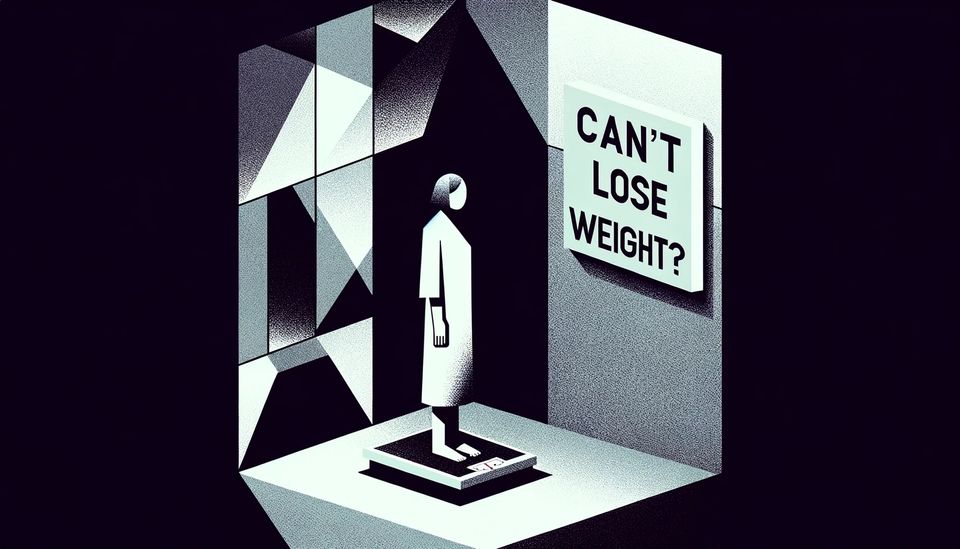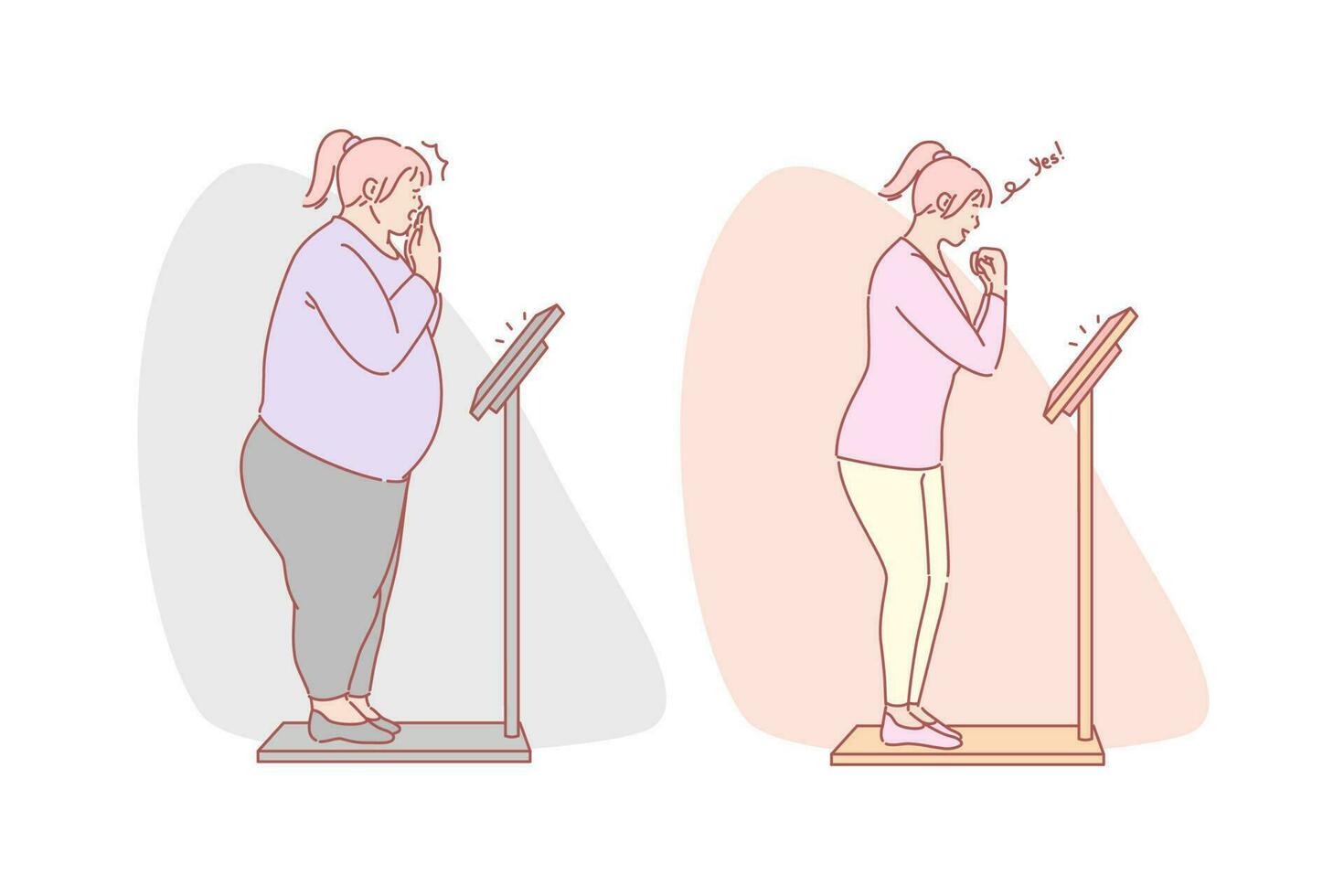Can't Lose Weight No Matter What? Here's Why and What to Do

Losing weight can sometimes feel like an uphill battle. You might be doing everything by the book: counting calories, cutting carbs, upping your protein intake, and exercising regularly.
Yet, the scale doesn't seem to budge.
Sound familiar? You're not alone.
This challenge is more common than you might think.
Let's dive into the reasons why weight loss can be so elusive and what you can do about it.
The Weight Loss Industry: A Lucrative Business
The weight loss industry is booming, raking in millions annually in South Africa. From special foods and supplements to diet pills, there's a plethora of products and programs promising the dream figure.
However, not all these solutions are safe or effective. For instance, many diet pills aren't regulated and can pose health risks. Surprisingly, even individuals who aren't overweight sometimes resort to these pills, hoping for a quick fix.
Why Some Women Struggle to Reach Their Goal Weight
Several factors can hinder weight loss:
Health Conditions:
- Lipedema: This is a condition where fat accumulates in the legs, often leading to a disproportionate appearance compared to the upper body. Unlike regular fat, the fat associated with lipedema is resistant to diet and exercise, making weight loss particularly challenging.
- Hypothyroidism: The thyroid gland, located in the neck, produces hormones that regulate metabolism. Hypothyroidism is a condition where the thyroid doesn't produce enough of these hormones. A slower metabolism can lead to weight gain or difficulty losing weight.
- Polycystic Ovary Syndrome (PCOS): PCOS is a hormonal disorder common among women of reproductive age. Women with PCOS might experience insulin resistance, leading to weight gain, especially around the waist. The hormonal imbalances associated with PCOS can also make weight loss more challenging.
Dieting History:
- Yo-Yo Dieting: This term refers to the cycle of losing weight and then regaining it, only to diet and lose weight again. Repeated cycles can alter the body's metabolism, making it more efficient at storing fat. Over time, this can make each subsequent weight loss attempt harder than the last.
- Metabolic Adaptation: After periods of significant calorie deprivation, the body can go into a "starvation mode," slowing down the metabolism to conserve energy. This means that even when you return to a normal diet, your body might store more fat in anticipation of another "famine."
Age:
- Muscle Mass Reduction: As women age, they naturally lose muscle mass. Since muscle burns more calories at rest than fat, a decrease in muscle mass means a slower metabolism, making it harder to burn calories and lose weight.
- Hormonal Changes During Menopause: Menopause brings about a shift in hormones, particularly a drop in estrogen levels. This can lead to weight gain, especially around the midsection. Additionally, these hormonal changes can affect appetite, metabolism, and fat storage.
Gestational Influences:
- Mother's Diet During Pregnancy: Emerging research suggests that a mother's nutrition during pregnancy can influence the child's weight tendencies later in life. For instance, excessive weight gain during pregnancy or a diet high in sugars and processed foods might predispose the child to obesity or weight-related challenges in adulthood.
- Epigenetics: This refers to changes in gene activity without altering the DNA sequence. It's believed that certain conditions during pregnancy, like maternal stress or exposure to specific nutrients, can "mark" a child's genes in ways that affect their metabolism and weight regulation later in life.
In conclusion, weight loss is a multifaceted journey, and what works for one person might not work for another. Understanding the underlying factors that influence weight can help in tailoring more effective and personalized weight loss strategies.
The Ever-Changing "Ideal" Body

Beauty standards have evolved over time. A century ago, a fuller figure was considered attractive. Fast forward to today, and the "ideal" body is often portrayed as slim and toned.
However, it's essential to remember that these standards are influenced by cultural and societal factors. For instance, while Western societies might value thinness, other cultures associate a fuller figure with attributes like fertility and vitality.
Embracing a Health-Centric Approach
In today's world, where societal pressures and media often emphasize a certain body type or size, it's easy to lose sight of what truly matters: our health and well-being. While it's natural to desire a physique that aligns with popular standards, it's crucial to understand the deeper implications of our weight loss motivations.
Health vs. Aesthetics
If your weight poses genuine health risks—like predisposing you to conditions such as diabetes, heart disease, or joint problems—it's imperative to continue your weight loss journey with guidance from healthcare professionals.
On the other hand, if your primary motivation is to fit into a smaller dress size or achieve a look you saw on social media, it's worth reassessing your goals. While there's nothing wrong with wanting to look your best, it's essential to ensure that these desires don't compromise your overall health or mental well-being.
Shifting the Focus
Instead of letting the number on the scale dictate your mood or self-worth, shift your focus to holistic health. This means:
- Nutrition: Prioritize a balanced diet that fuels your body with the essential nutrients it needs. This doesn't mean strict calorie counting but rather making mindful choices—opting for whole foods, reducing processed items, and listening to your body's hunger and fullness cues.
- Physical Activity: Engage in exercises that you enjoy. Whether it's dancing, hiking, yoga, or weightlifting, the goal is to stay active and improve cardiovascular health, muscle strength, and flexibility.
- Mental Well-being: Remember that mental health is just as crucial as physical health. Practice self-care, engage in activities that bring joy, and consider meditation or mindfulness practices to reduce stress.

Finding Support
Embarking on a health journey can be challenging, and having a support system can make a world of difference. Consider:
- Joining Support Groups: Whether online or offline, support groups can offer encouragement, share experiences, and provide accountability.
- Seeking Professional Guidance: A dietitian can help tailor a nutrition plan to your needs, while a therapist can offer tools and strategies to cope with body image issues or emotional eating.
Setting Realistic Goals
It's essential to set achievable goals. Instead of aiming to lose an arbitrary number of pounds in a short time, focus on sustainable changes. Maybe it's incorporating more vegetables into your meals, walking 10,000 steps a day, or practicing mindfulness for 10 minutes daily.

Celebrating Non-Scale Victories
While it's gratifying to see the scale move, there are numerous other victories worth celebrating. Maybe you can now climb several flights of stairs without getting winded, or perhaps you've noticed improved sleep since eating better. These non-scale victories are reminders of the positive changes you're making in your life.
In the end, embracing a health-centric approach is about recognizing that you're more than a number on a scale. It's about nurturing your body, mind, and spirit, ensuring that you're not just living, but thriving. Remember, the journey to health is a marathon, not a sprint. Celebrate every step forward, no matter how small.
In Conclusion
In today's society, where thinness is often glorified, not being able to lose weight can be disheartening. However, it's essential to remember that everyone's body is unique. Instead of striving for an unrealistic ideal, focus on health, well-being, and self-love. After all, true beauty radiates from within.